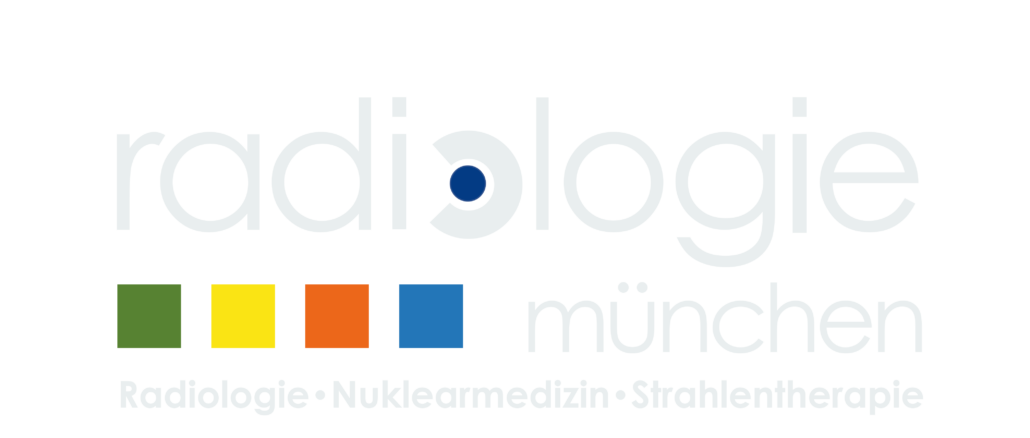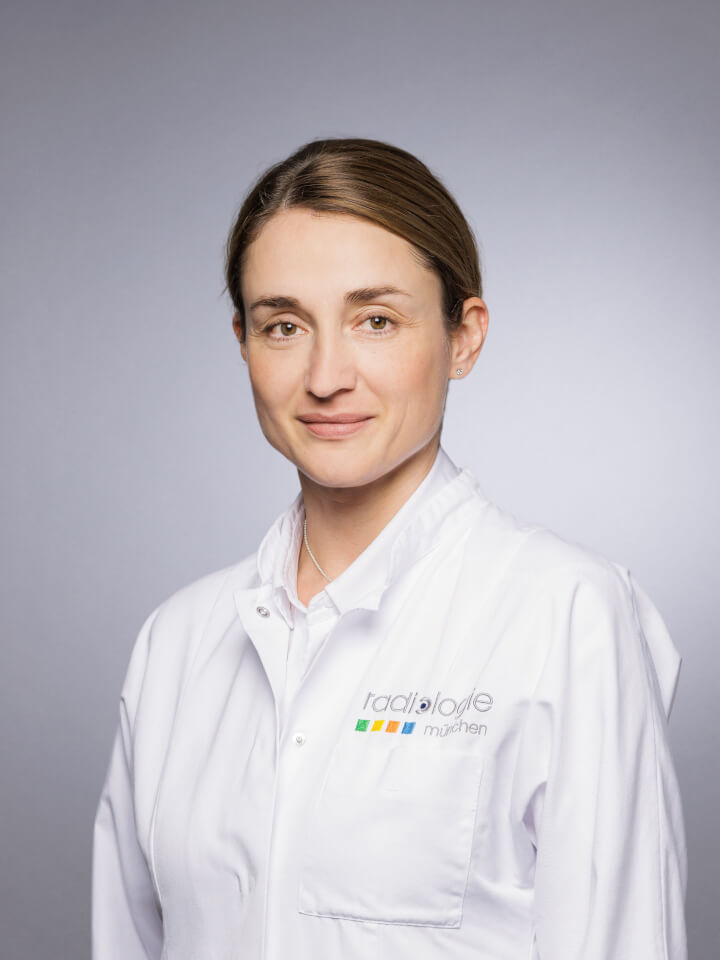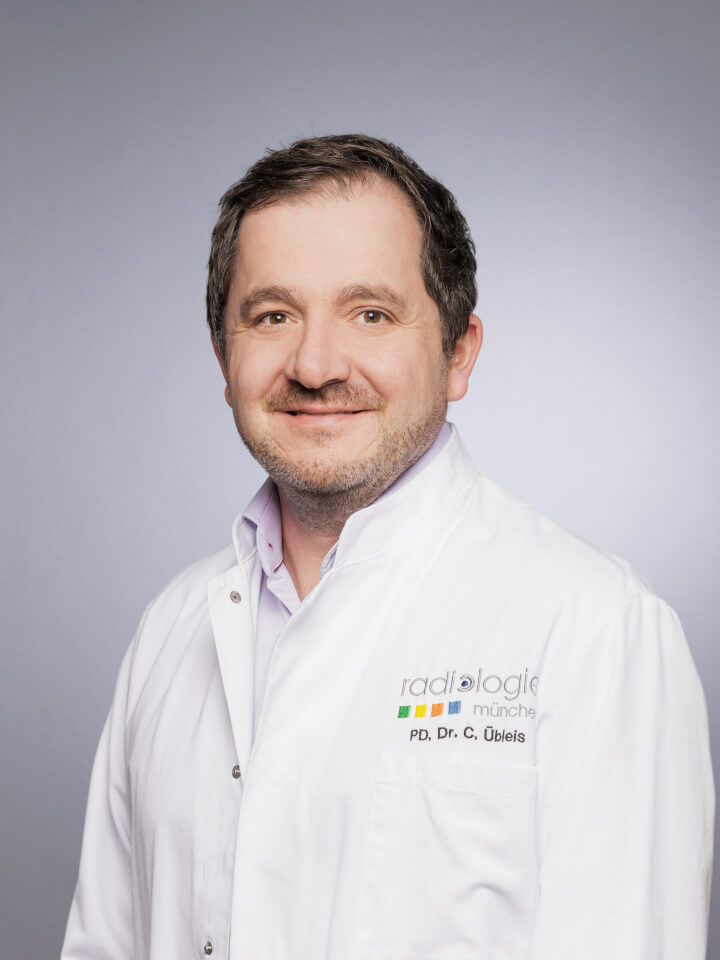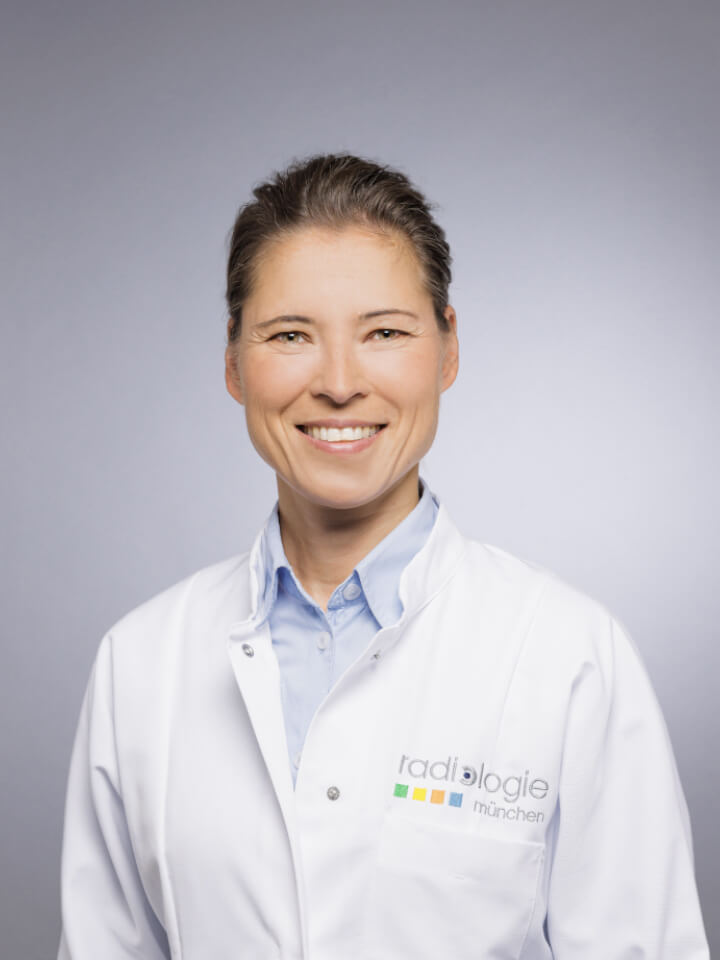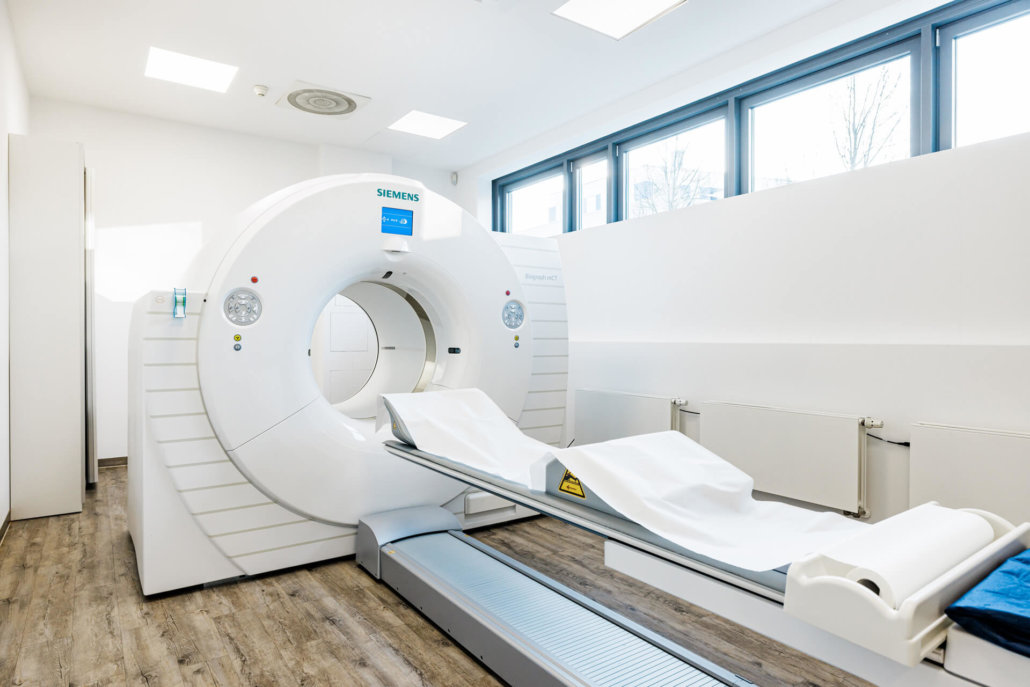PET/CT – innovative diagnostic advance
PET/CT in cardiology is used not only to combat cancer but also in cardiac examinations to clarify inflammation and infarcts. Both procedures provide cross-sectional images of your body. While a CT itself emits radiation and measures the radiation that penetrates the body, the PET scanner (comparable to a camera) measures the radioactive radiation emitted by the so-called radiotracer.
approx. 3 hrs.
Total duration of the examination
approx. 40 min
PET-CT scan duration
Where can you have a PET-CT performed for cardiological problems in Munich?
By imaging the workings of the heart with a PET/CT, blood movement and vessel permeability become visible. The cardiological problems can thus be detected very detailed and early thanks to the imaging examination. An excellent prerequisite for any type of therapy. Our team of specialists is available to assist you with a PET/CT appointment.
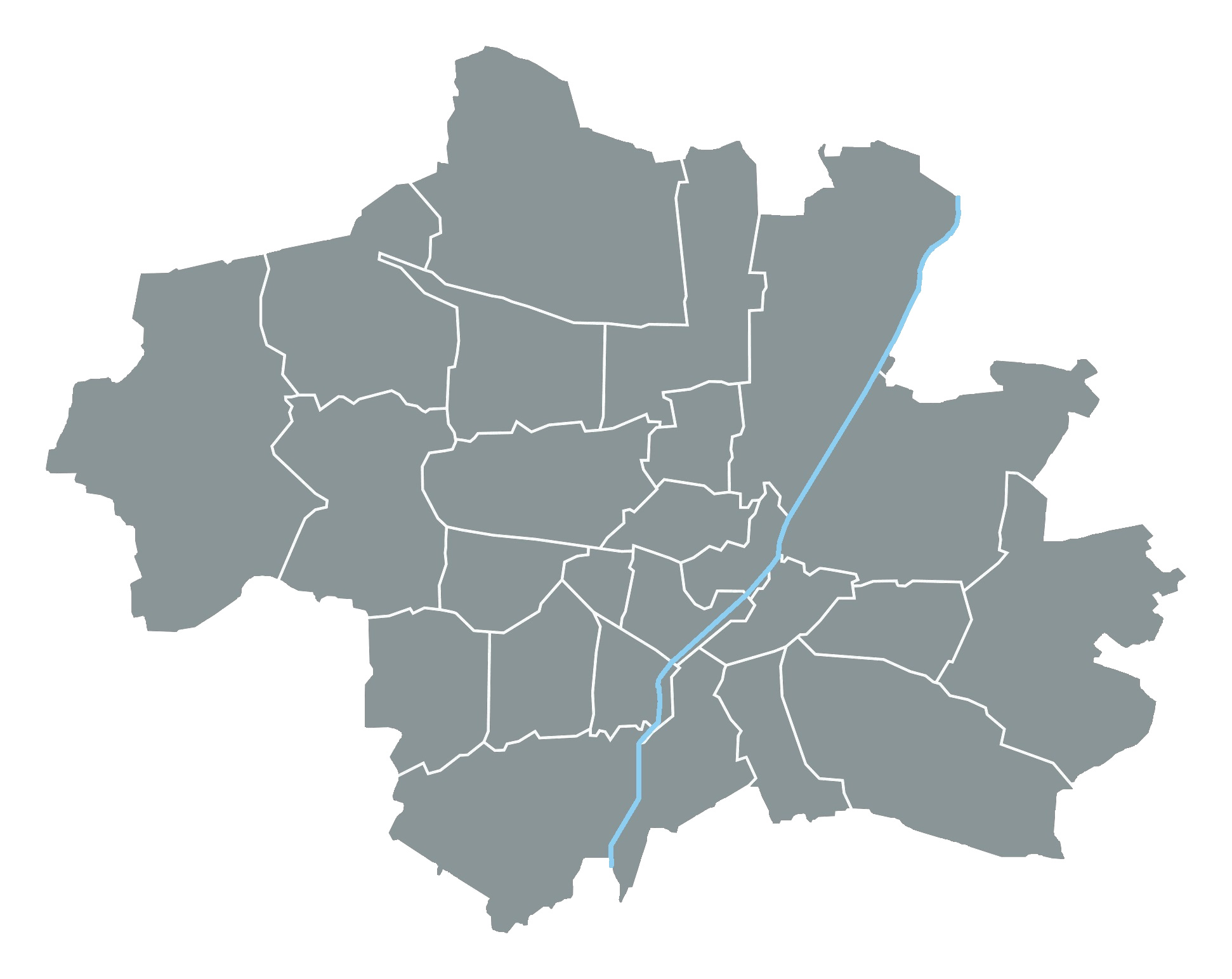
Your contact person for PET-CT
Feel free to contact us directly through any of the following channels! You can contact us by telephone during the practice hours of our location at Max-Lebsche-Platz in Munich Großhadern ( Mon-Fri from 8 a.m. to 6 p.m.) on 0049 89 2121 96 535.
Please feel free to use our registration forms, which you can send to us by e-mail to petct@radiologie-muenchen.de or by letter.
Scarring of the heart tissue
Various heart diseases, such as coronary artery disease (CAD), are associated with reduced blood flow to the heart muscle tissue, which can be detected by cardiac scintigraphy. However, this examination procedure cannot reliably clarify whether the tissue in an area with a poorer blood supply has already scarred (avital myocardial tissue). This is where PET/CT comes into play in cardiology.
PET/CT is particularly important in patients with reduced cardiac function due to decreased blood flow to the myocardium. FDG-PET-CT of the heart can provide crucial information for the prospects of success of potential therapeutic measures (e.g., bypass surgery, PTCA, stent).
FDG-PET-CT
In PET/CT cardiology examinations, weakly radioactively labeled substances known as radiotracers are injected into the blood. These radiopharmaceuticals are metabolized by the cells and the gamma radiation emitted by these substances is recorded with the aid of so-called gamma cameras. The radiotracer most commonly used in PET-CT examinations is fluorodeoxyglucose (FDG).
After injection, FDG is absorbed into the vital heart muscle cells like normal dextrose (glucose). Scarred heart tissue, on the other hand, does not absorb glucose. FDG-PET/CT examination can visualize radiolabeled sugar and thus glucose metabolism. Areas of reduced or absent metabolism (avital tissue) can thus be identified.
What should you look for in a PET-CT scan?
A PET-CT examination can usually be performed on an outpatient basis.. This means that you may go home after the examination. To avoid unnecessary risks, you should follow some rules of conduct before and after the examination:
Medication
The intake of blood glucose-lowering medication should be suspended on the day of the examination. All other medications – including cardiac medications – can usually be taken unchanged. Before a planned examination, please discuss with your physician which medications you will not be able to take as usual on the day of the PET-CT examination.
Do I need to be fasting for a PET-CT heart scan?
Yes, you should be fasting at least 6 hours before the examination. Only water may be drunk before the examination; coffee and tea are not allowed. You should also eat a low-carbohydrate, high-protein diet the evening before the examination.
When and for whom is PET-CT not suitable?
PET/CT is a method that has been proven for decades to detect metabolic processes in the body safely and painlessly. However, since this method exposes you to radioactive radiation, it should only be used after a critical evaluation of your findings and an individual weighing of the benefits and risks. A PET/CT examination is usually not suitable for pregnant women, as the unborn child is particularly sensitive to the radioactive radiation.
